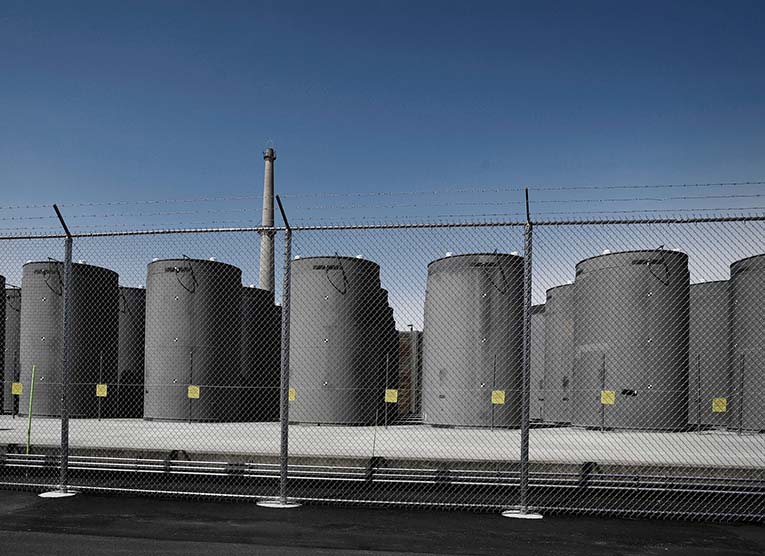Joe Biden has affirmed a new interpretation of high-level radioactive waste based on its radioactivity instead of how it got radioactive. The type of waste in question is sludge, slurry, liquid, debris, and contaminated equipment that comes from the production of atomic bombs.
Firstly, the US Department of Energy (DOE) announced the affirmation last week; directly affecting radioactive waste from nuclear weapons production stored in Idaho, Washington, and South Carolina. The new declaration means that those depositories could be reclassified and therefore relocated elsewhere.
Moreover, DOE affirmed the new interpretation “after extensive policy and legal assessment (as it is) consistent with the law; guided by the best available science and data.” It also added. “The views of members of the public and the scientific community were considered in its adoption.”
As a reminder, and according to AP, the Biden affirmed interpretation came after various groups offered letters of support and opposition to the agency after him becoming president. The controversy led to the notice in the Federal Register making clear where the administration stood.
Furthermore, the agency noted that making disposal decisions based on radioactivity characteristics rather than how it became radioactive could give DOE space to prioritize; therefore, it could focus on other cleanup projects. It would also reduce how long radioactive waste is stored at Energy Department facilities; and increase safety for workers, communities, and the environment.
Also recommended for you: DigiMax launches ESG division; invests in MADA Analytics. Click here to read.
Biden should not move forward with a repository
In addition, the policy has the support of the Blue Ribbon Commission on America’s Nuclear Future; formed during the Obama administration.
On the other hand, the policy will directly affect three sites. The depository in Idaho, a 890-square-mile site in the southeastern part of the state. In Washington, the depository at the Hanford Nuclear Reservation; a decommissioned nuclear site in the south-central part of the state that produced plutonium for nuclear bombs; and also, the depository in South Carolina, a 310-square-mile known as the Savannah River Site.
Finally, despite its advantages, the policy has met with some criticism; as the nation has no permanent storage for high-level radioactive waste. Reclassifying some of the high-level waste under the new interpretation means it can legally go to commercial facilities for storing waste deemed less radioactive.
Edwin Lyman, director of Nuclear Power Safety at the Union of Concerned Scientists, said about the matter. “Any decision made under this new interpretation has to be backed up by solid analysis and a strong commitment to public health and safety and environmental protection.” And also noted that “it shouldn’t be used as an excuse not to move forward with a repository,” Lyman said. “That’s the danger.”


